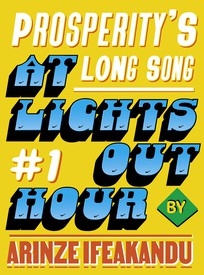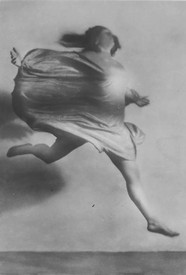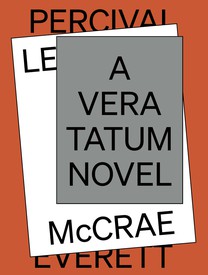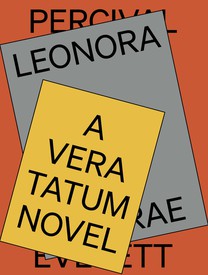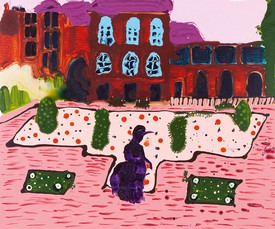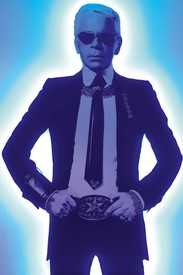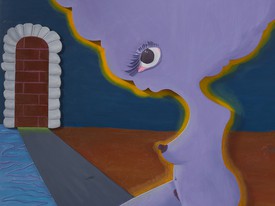
Libby Flores’s writing has appeared in the Kenyon Review, American Short Fiction, Post Road Magazine, McSweeney’s, Tin House/The Open Bar, the Guardian, and the Los Angeles Review of Books. She is currently the Associate Publisher of BOMB magazine. Flores holds an MFA in creative writing from Bennington College.
My life was a morsel at the time. I was always looking at the doors of restaurants and bars instead of the face across from me. The light coming in: a silhouette, a promise. I was divorced, I told people. Making plans felt silly, pathetic even. But I did anyway, as friends said, as an “exercise.”
My truck still ran. The house still moaned on every third step. I mowed our lawn—something Meg used to do. When I couldn’t cross a room without blackening the bottoms of my feet, I managed to sweep. I missed the screen door slamming and fresh sheets on Sundays. The first year, a few kind ladies in town sent a cleaning woman, who left well paid but with the rooms still untouched. The tomatoes went wild, ripened, split open, and then dropped, unpicked.
When I went to pick up my mail they still wanted to sell her life insurance or a new summer wardrobe. Instead of throwing the junk in the trashcan I set hers in a pile where she used to open it on the kitchen table. I inherited her debt, but I knew how little it mattered. I’d been paying to love her for years and now seeing out her Mastercard bill was just the tax. On Fridays, a trip to the PO box in town and finding her name printed there saved me a little. A part of her was still heading to me and I was still driving her home.
Gissup is a small town in northern California and it was not her first choice. My job kept us there. When Meg met me in college she had ideas about how to change things. And all she needed was a master’s degree. Instead of getting that degree, she took on a small town’s education system. She watched me plan small parks and open lakeside camping grounds. There were cities that could have used her guts. But then, there was always someone who wanted her. That was the kind of woman she was.
We used to walk down to the stores after our coffee on Sundays. Just to look at things through the windows. She loved interior design and we’d stop and talk about what she liked in each display. Linen pillows, midcentury chests, and side tables clear of clutter—as they never are in life. We couldn’t afford much. The glass separated us. In its shine on sunnier days I’d admire the two of us before we got close—her in a long dress, some flowery thing, and our hands clasped. My body was leaner then and my shirts were always clean.
When it was my turn to take out the trash I’d lift the lid and drop in the waste of our lives, even her scraps were not that heavy. I’d start to turn back, but pause. My gaze would hold at our house. The living room glowing warm orange and the sound of whatever record she’d put on to wash the dishes to—drifting out. We rented, but it felt like ours. With my head tilted up, right over the Bradleys’ chimney, you could see Mercury shining like a porch light left on. Whether or not the moon was bright, Mercury was there.
It wasn’t long till she started to get cramps in her legs. The shaking was the worst. It embarrassed her most. I still admired her spine—the thing holding her together. She’d try to be mean, lash out, but it was useless. She was angry at it. I was too. On some holiday or anniversary, I decided to make her pancakes. There was little cooking happening anymore. I watched videos and read up. Just like my practice exams for my landscaping license.
I purchased the natural vanilla and bread flour. Pancakes are simple things to make, most say. We’d been using trays for her meals and I balanced the hot disks one on top of the other and butter nestled in between. OJ and water sloshing as I crossed the hall—her pills getting soaked from the spill. I walked into our bedroom, or by then her room really. She’d tried to comb her hair unsuccessfully and was weeping at the dropped brush near the bed. Her useless hands unable to grab it.
I’d forgotten the syrup. And without that, the pancakes were just bready circles. It was comforting what her brown eyes could let me know. Schmuck, they said. My mistake made her forget the brush, me the syrup, and that was enough.
That breakfast was the last thing I made her. That night we slept as I dreamt of her tan body darting around thin trees at night almost in a dance, headlights reflecting off her thighs, a rabbit running back toward the swamp where she was raised.
At the beginning of our relationship, she wasn’t mine—completely. She was living with a man off campus whose name she rarely mentioned. For about six months, she was always leaving. Leaving my apartment, leaving the city for out-of-town trips with his family, leaving to get eggs and not able to return. The sound of her keys rattling and her boots being zipped up years after we were together caused me panic.
We never really fought about it. Her leaving was an unspoken agreement. No matter how long our afternoons were, how much I made her laugh (she’d often laugh so hard she’d sneeze), I knew what I was getting. At this point I started to love her, but at the end of the day or weekend I’d have to let her go. Of course, eventually, the other man lost. I finally got his name. Sam—a man who suspected nothing and gave everything to Meg. He proposed to her and that was what finally made her leave. She cradled that guilt for years. Once after a bit of wine she told me that for nine months she’d wake up early and move his Sunday paper from the curb to his welcome mat.
Seven summers ago, I caught up with her one night at a bar on a snaking back road off of I-90. It was the Fourth of July. She was supposed to be out with some friends. It had been so long since she’d left the house. I’d followed her to the bar to assure her safety. Holiday traffic and all. That’s what I told myself. Truth was, since her diagnosis she was teetering on something all the time. It could be a bout of laughter or a sudden ambition to clean the garage, but it came in wallops of extremes. I’d hold the mop; I told myself, This is when men get tougher.
I’d watched them leave a bar together. Watched as this new stranger stuck his finger into one of the belt loops of her jeans. A move that made me jump a little, jostling my table. Somewhere I’d admired the move—the boldness of it, the fresh stupidity of it.
She had met up with a few friends, but when they saw the two of them getting on they left in that way that women know how to leave. I had embarrassed myself in a lame disguise, my baseball cap, an old windbreaker she wouldn’t recognize, my posture a hunch. Our town hosted three main bars and on a Friday the Whiskey Tip was busy and unusually full. The night when interlopers appeared from neighboring cities, and to top it off it was the Fourth. I grabbed a seat in the back booth, the ones made for two. There was newer staff to cushion the holiday crowds so no “Hi Wal” or asking about the business.
My windshield had speckled bird shit across it and worse, on the inside, her obscured handprints from a day when she tried to take her bandana and clean it. I kept saying, It’s outside, Meg, it’s outside! What remained looked like desperate gestures to escape. Fingers in frenzy on the edges of my eye line. On a different day, this would’ve resembled a preschool hand painting. I kept forgetting to clean it.
I guess I understood. Her diagnosis new: a horrible thing waiting. A woman stamped with expiration. Her body was still together then, in control, not vibrating away from her. And he was someone who didn’t know. A gift.
The back of his car said plenty. A dirty vehicle, an Acura at least ten years old. One aged bumper sticker I saw when my headlights hit it just so: a local mayoral-candidate campaign and expired tags.
It’s the mornings when you can see where the love lies. The languid hope lingering, the smell of coffee, her long legs in terry-cloth shorts, and somewhere on my cluttered bed-stand a cup used to appear, the cream still swirling in it—the light encapsulating the dark.
He was a steady driver so no sudden stops. His rear window was dusty and slightly tinted. I’d know the back of Meg’s head anywhere and I still couldn’t make it out. I was thinking by now he’d graduated from a belt loop to a crotch seam. The last thing I drank in the bar, bourbon straight, was burning in my gut. A reminder that I’d skipped dinner to find something I did not want to know.
A van pulled between us with one of those dumb illustrations showing the family in stick figures, even the dog represented. I swerved to make sure they were still there, that silver Acura license plate not yet memorized.
He turned fast and sharp, something Meg would hate. She detested that kind of driving unless she was doing it. I thought of a bad joke then: What kind of man follows his wife? Well, what kind of wife?
So there we were barreling down a smaller road, fields of strawberries either side of it, dust picking up behind them, lights beaming brighter through the haze. Heading to his house maybe. This wasn’t a lookout area and the fireworks were going to be south not north this year.
The road changed to gravel. Their windows were open; her arm appeared outstretched and her thin fingers traced the air like a conductor. It was a cool evening for the Fourth. I still held back my boot over the gas, coasting a bit then pressing down, lifting it again like a compress. I stayed just far enough behind unnoticed, or it could be that to the two of them inside, that Acura was all there was. I’d come this far to see how much she wanted to undo.
She’d taken to reading her weekly horoscope. It was a different truth she wanted. One afternoon I dropped her at a tarot reader’s house. I say house because putting a neon hand in your window does not make it a business. Honestly: I would have driven her anywhere. When I picked her up she was quiet but smiling and when I asked her what the woman said she put her arm around me and whispered, her voice breaking—I won’t choke and don’t forget to close the garage door at night. The doctor said she was lucky to catch it so early. I didn’t know medical practitioners were allowed that word.
When I first asked her to marry me we’d been dating a year. College was over and we’d combined our stuff in a small apartment in Santa Cruz. How I did it doesn’t matter. But people ask. It was after dinner on one of our walks. No ring. Just a question. One of the most anxiety-inducing questions a man can ask. She said nothing for a long time. Then she grabbed my hand and squeezed it like a thank you. But didn’t say yes. At the time, that singular moment held enough promise that I allowed the ambiguity.
I can only assume it was his house and that he must’ve been in the strawberry business. A one-story nothing that needed work. Concrete foundation and a roof cratering. They didn’t get out of the car. The Acura stopped and she drew her hand back in the window. I parked across the road and watched as he cut his lights.
We wouldn’t know then that a nurse would come in and loud equipment would live near our bed. That you have to decide when it’s time to go on breathing machines and that the worst fear of the disease for the patient is choking on your own tongue. That we’d never buy that coffee table or marble coasters because being sick is expensive—more expensive than anything that was on the other side of those glass windows.
A security light clicked on and the passenger door opened—those legs slipped out.
Something that sounded like “Jessie’s Girl” was coming from the car. The notes echoed out of weak speakers that made me think of ice melting too far down in a drink. The headlights turned back on and he came out of the car, tilting back a fifth of something brown. He threw the bottle down and she was already laughing so hard that she was wiping her eyes. The lights shone through her white shirt and her arms so long, then, so strong still, waved over her head then side to side. She started to pull on it, teasing it out of her jeans. Each time it rose a little higher above her stomach on that dusty stage. He leaned on his car door taking in the last of the song and then he started his first steps toward her.
What indeed can you call a man who wears jeans that look like slacks? I thought, What if I crossed that road and caused the disease to speed up—all that adrenaline in her body. Irrational, I know. I imagined her looking up from her dance, her eyes dropping the laughter they held moments before, her shirt falling back into place. Even then, a small part of me hated to disappoint her. I turned my engine on.
It was then I could see her gaze, past his sloppy gait, into the cabin of my truck. For a month it had squealed when it started up—a neglected belt that needed attention. We had bigger fish. He paid no mind to it. To her it was a sound not only that she knew but that had embarrassed her on countless occasions, pulling out of grocery store lots, movie theaters, and once picking her up from a baby shower when it had reached such a pitch that we fought the whole way home. She knew.
Most understand that just as women are taught to cross their legs, men are always supposed to know what to do. There she was out of my reach again. Out there on that summer night with this stranger, I’d witness one of her last bright volleys. She didn’t choke after all. I did.
I stayed to watch the scene. Their heads tilted up when the first firework of the night went. Its dandelion burst I could see in my rearview over the strawberries. Fucker had planned it right.
And when I drove home from work today I saw those shitty stands on the side of the road selling bottle rockets and Black Cats. The sellers have aged, but they’re still handing out free smoke bombs with purchase. Then it begins. I’ll hear them start up weeks ahead of the holiday. Mostly kids at first, but it gets worse from there. I find myself under our comforter, like a dog, waiting it out.
It was a last-minute decision, but when her parents and I were selecting her clothes I slipped the ring on a thin string, our tightrope, and asked the mortician to place it around her neck. Maybe I wanted to finally have something on her.
I never looked up at the sky that night, but I heard the pops coming at a greater speed. I sat there in the driver’s seat and watched the colors reflect on the siding of his house and when she stepped closer to him, I saw her shirt and face turn shades of red, then blue, then white again.
For the 2021 fiction section of the Gagosian Quarterly, we have teamed up with PEN America to highlight a selection of writers from PEN’s advocacy and literary programs. Founded in 1922, PEN America is part of an international network dedicated to fostering freedom of expression through numerous initiatives at the intersection of literature and human rights.
This installment, from the Summer 2021 issue, presents former PEN Emerging Voices Fellow Libby Flores. The Emerging Voices Fellowship provides immersive mentorship for early-career writers from communities that are traditionally underrepresented in the publishing world.
To learn more about the Emerging Voices Fellowship and the rest of PEN’s work, please visit pen.org.
Text © Libby Flores
